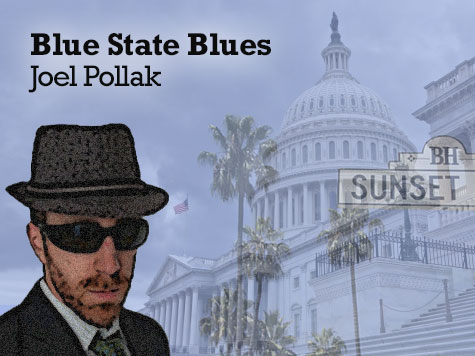You know there is something seriously wrong with the American tech sector when it is lining up its best, brightest, and richest to support whatever executive action President Barack Obama takes in December to grant amnesty to illegal immigrants.
Tech activists give it Orwellian euphemisms, calling it “administrative relief,” not “executive amnesty.” They have evidently given up on persuading the “obstructionist Republicans” or the voters who elect those Republicans.
These mostly young entrepreneurs, who have benefited from the fact that their industry is largely unregulated, and who treasure their own personal freedoms, are eager to place their skills and resources at the disposal of the arbitrary power of the chief executive.
Most know that big government grows more inefficient and incompetent the bigger it gets. (Many mocked the launch of Obamacare, for instance.) But many still want more of the same.
At this week’s monthly meeting of FWD.us–the immigration reform lobby group founded by Facebook’s Mark Zuckerberg and other tech heavyweights–I observed that no one thought to question whether the U.S. Constitution actually allows the president to take the kind of unilateral steps at which he has hinted in recent months.
These are not people who have time for process or constraints: they are simply used to finding solutions to problems. And they see immigration reform as a problem to be solved–or, in the jargon of the subculture, to be “hacked.”
They are particularly, and understandably, adamant about removing the obstacles that skilled workers face in immigrating to the U.S. Delays mean that would-be innovators are setting up shop in Bangalore and Tel Aviv instead of San Jose and Santa Monica.
And some techies are also motivated by politics, urging “justice” for illegal aliens.
Regardless, they are impatient with the checks and balances on executive power. And they take pride in being the “disrupters” of established institutions and conventions.
If immigration reform creates new challenges for the American jobs market, or sparks cultural tension, or poses challenges to the rule of law–well, they seem to say, so be it! If you are smart enough–to borrow a line from Gov. Jerry Brown–you’ll find a way to make it.
And so the discussion at FWD.us focused on creating new “metrics” by which to measure progress towards the goal of ratifying President Obama’s penstrokes.
How many YouTube views would be needed of testimonials by “undocumented Americans” about the need to be legalized? How many messages would need to be sent to the president via Democratic members of Congress? How many social media platforms would need to be involved?
Yet If they cared about effective, enduring immigration reform that enjoyed wide political legitimacy, they would be looking at different metrics.
They might, for example, be thinking about how to reduce illegal border crossings to zero, using new technologies field-tested in places like Israel–because once the public is convinced that the border is secure, most opposition to immigration reform will evaporate. Or they might think about how to use social media to inform prospective lawbreakers that the cost of legal immigration is probably far less than a smuggler’s bribe.
But the tech community, in general, is not thinking about law or the Constitution or the democratic process. The activists of FWD.us are thinking about how to win their campaign by hacking the republican system, and uploading their own code.
They believe they are acting with the noblest intentions. It is something rather frightening to watch.
Senior Editor-at-Large Joel B. Pollak edits Breitbart California and is the author of the new ebook, Wacko Birds: The Fall (and Rise) of the Tea Party, available for Amazon Kindle.
Follow Joel on Twitter: @joelpollak

COMMENTS
Please let us know if you're having issues with commenting.